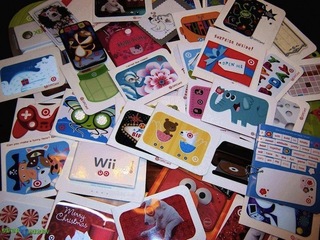The FDA outlines draft guidance on AI for medical devices
The agency also published draft guidance on the use of AI in drug development
Read more...
Marketing campaigns online are in a constant state of change and innovation to keep up the the practices of Internet users and the evolving expanse of technology. One gift network, FreeMonee, is taking the ease with which deals, money and services can change hands on line and has attracted a substantial round of funding to grow its incentive programs.
The latest round of funding, $34 million, was led by Charles E. Ryan, current Chairman of UFG Asset Management and former Chief Country Officer and CEO of Deutsche Bank Group in Russia, and included existing investors Redpoint Ventures, Sutter Hill Ventures, Opus Capital Ventures and Pinnacle Ventures. This brings FreeMonee's VC fundraising to $45 million.
This round comes within months of WhaleShark raising $150 million, CouponCabin raising $54 million and Coupons.com raising $30 million.
FreeMonee works by offering cash gifts from participating merchants directly to consumers. The San Mateo-based company, founded in 2009, works with at least 100 different merchants (from 30 different verticals) and four financial institutions, to give consumers free gifts in the form of credits to their credit and debit cards to buy specific items from the merchant and in return, retailers get more store traffic and sales.
Merchants set up how they want to create the campaign, how many customers they want to offer gifts to and then see what items these gift-card-esque perks result in.
This strategy has proven effective for merchants because it ups the likelihood that the incentive will translate into profits is higher than other marketing techniques and FreeMonee has found a better result with this method than with the offering of deals or coupons. It is also important to note that there is a lot more control of how many people get the offer this way than a coupon campaign.
The company has seen merchants' sales lift 400% to 700% and a return on ad spend of 500% to 900%. Not too shabby.
In order to implement this campaign, FreeMonee has created tight partnerships with several financial institutions to also analyze anonymous purchase histories from the banks to improve targeting and see before and after result. The transaction data is stripped of personally identifiable information to protect consumer privacy but does raise questions as to how this data is just so easily available. U.S. Bank and CapitalOne are public about their partnerships with FreeMonee, but two other banking partners are not so transparent about their connection to this program.
While still different, this seems like a natural extension of gifting services like those that have grown on Facebook such as Wrapp.
Brands such as Fab, Gap, H&M, Rovio Entertainment and Sephora are working with the young Swedish company to try this new spin on an old way of driving traffic and sales.
The service uses Facebook and a mobile application so that people can give their friends free gift cards -- usually valued at $5 to $15. Then, once a friend is given this gift card, a message is posted to that friend’s wall, where others can see it and contribute more money to the card -- commonly for a graduation gift or birthday. This theory works on the principal that many people would be willing to contribute a little something to a friend for a given occasion, but would feel weird giving someone a $3 gift card -- but if 10 friends do the same thing for the same company then a $30 gift card for the Gap is a pretty nice present.
The gift card recipient can choose when to cash out and redeem the gift card, or leave it there for hopes thatmore people will contribute.
Back at the start of the year we reported that Wrapp was still gearing up to get into the US gift card market. Many businesses find great revenue in the gift cards they sell since a large number of them get lost or are never redeemed. But gift cards can also be great for retailers because people who do end up using them, will likely spend more than the value of the gift card when redeeming them.
And Wrapp's a social-gifting service allows for people to band together to make the gift a little more personal and lucrative. The Stockholm and San Francisco-based Wrapp announced in January that it's raised $5 million in a series A round of funding from Greylock Partners. The new funds is an addition to the $5 million already raised from Atomico, a venture firm founded by Niklas Zennstrom, founder of Skype. The total funds raised comes to some $10.5 million, including about $650,000 in an angel round from Creandum in May 2011.
If you consider that approximately $100 billion in gift cards are sent each year in the U.S. and around $35 billion to $40 billion in gift cards were sold during the 2011 holiday season alone, who wouldn't want to get a slice of that.
With executives from Spotify and Groupon, Wrapp is trying to really define the social commerce sector as something that can compliment the brick and mortar shops as well as benefit more people in a more personal way.
Retailers only pay Wrapp when a customer comes into the store and redeems the gift card and gift card recipients can build up their store credit until it is worthwhile for them to start shopping.
Since Wrapp’s launch in Sweden five months ago, it has more than 165,000 active users; has given away more than 1.4 million gift cards -- that equates to more than one gift card for every 10 people in the country.
The agency also published draft guidance on the use of AI in drug development
Read more...The biggest focus areas for AI investing are healthcare and biotech
Read more...It will complete and submit forms, and integrate with state benefit systems
Read more...Startup/Business
Joined Vator on




